LATIN - Midterm 1 Exam
1/30
There's no tags or description
Looks like no tags are added yet.
Name | Mastery | Learn | Test | Matching | Spaced |
|---|
No study sessions yet.
31 Terms
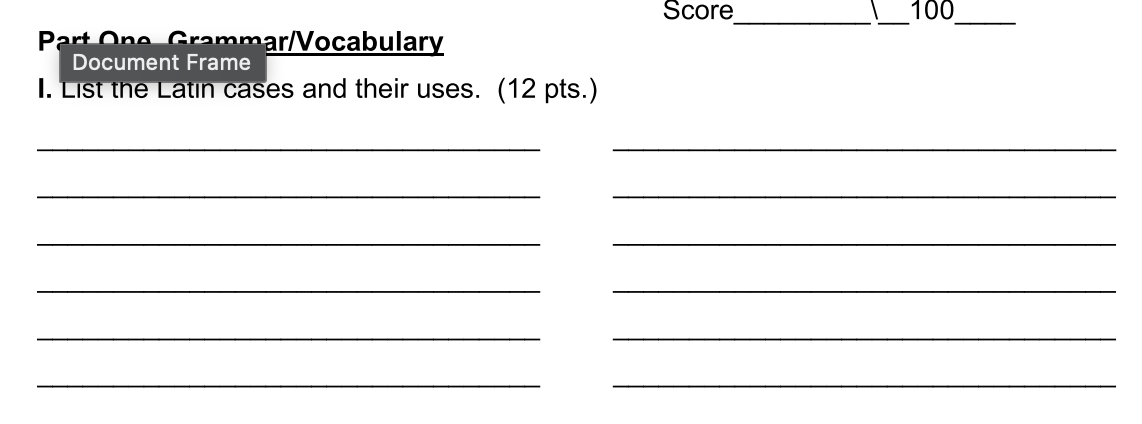
List the Latin cases and their uses.
nominative = subject, genitive = possessor, dative = indirect object, accusative = direct object, ablative = the by with from case, vocative = person addressed

Give the declension of each noun and decline it:
3rd declension, pars,tis,ti,tem,te,tes,tium,tibus,tes,tibus

Give the declension of each noun and decline it:
5th declension, es,ei,ei,em,spe,spes,rum,bus,spes,bus
Give the rules for gender of third declension nouns:
Nouns that end in -er and -or are masculine. Nouns that end in -s, -o, and -x are feminine. Nouns ending in -l, -a, -n, -c, -e, -t are neuter.

Diagram the sentence below.
Dux = subject/ leader, copiam frumenti = direct object/ supply in corn, exercitui = indirect object/ to the army, dedit = verb/ he gave

the body of Christ

the glory of Mary

because of the dangers of war
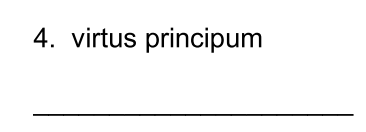
the courage of the chiefs
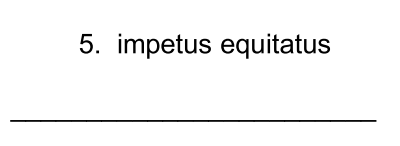
cavalry attack

behind the battle line

on the road of peace

king of the mountain
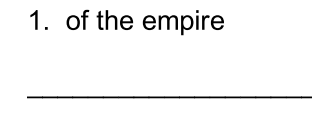
imperii

cum ducibus Gallorum

propter salutem
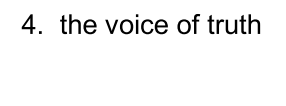
vox veritatis
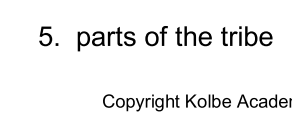
partes gentis

in itinere
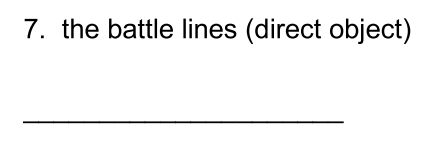
acies

metus senatus

The friends of the sailors praise the Christian

Christ is the light of men because he gave the truth to men

Part of the enemies are in towns, but part is on the road

The Roman army came to Gaul and the soldiers set up camp on a hill

Romani veritatem et gloriam Christi non laudant

Post adventum militum metus erat in provincia.

Copia frumenti in silvis erat

Agmina (militum) Gallos in portu in flumine vicerunt.

gratia

nomen